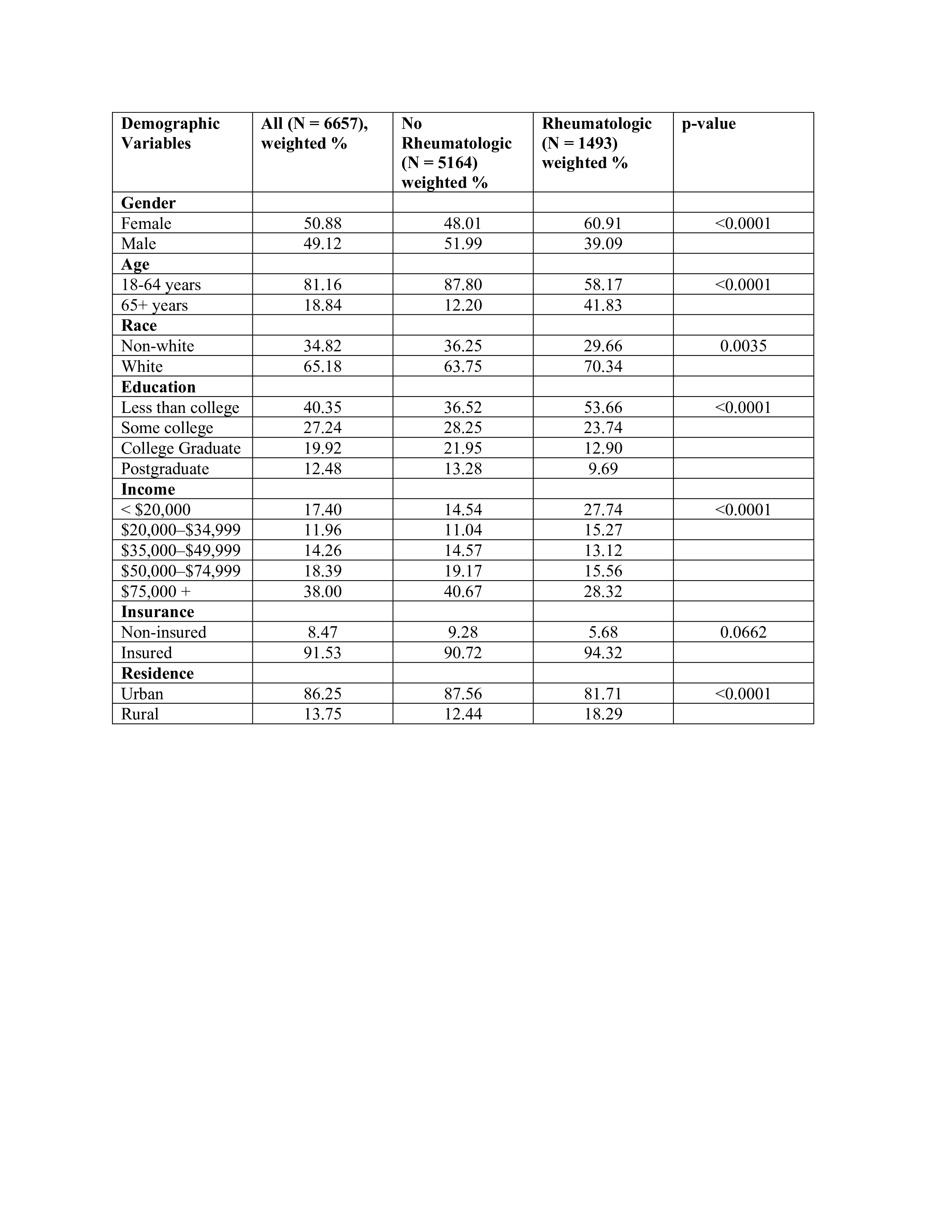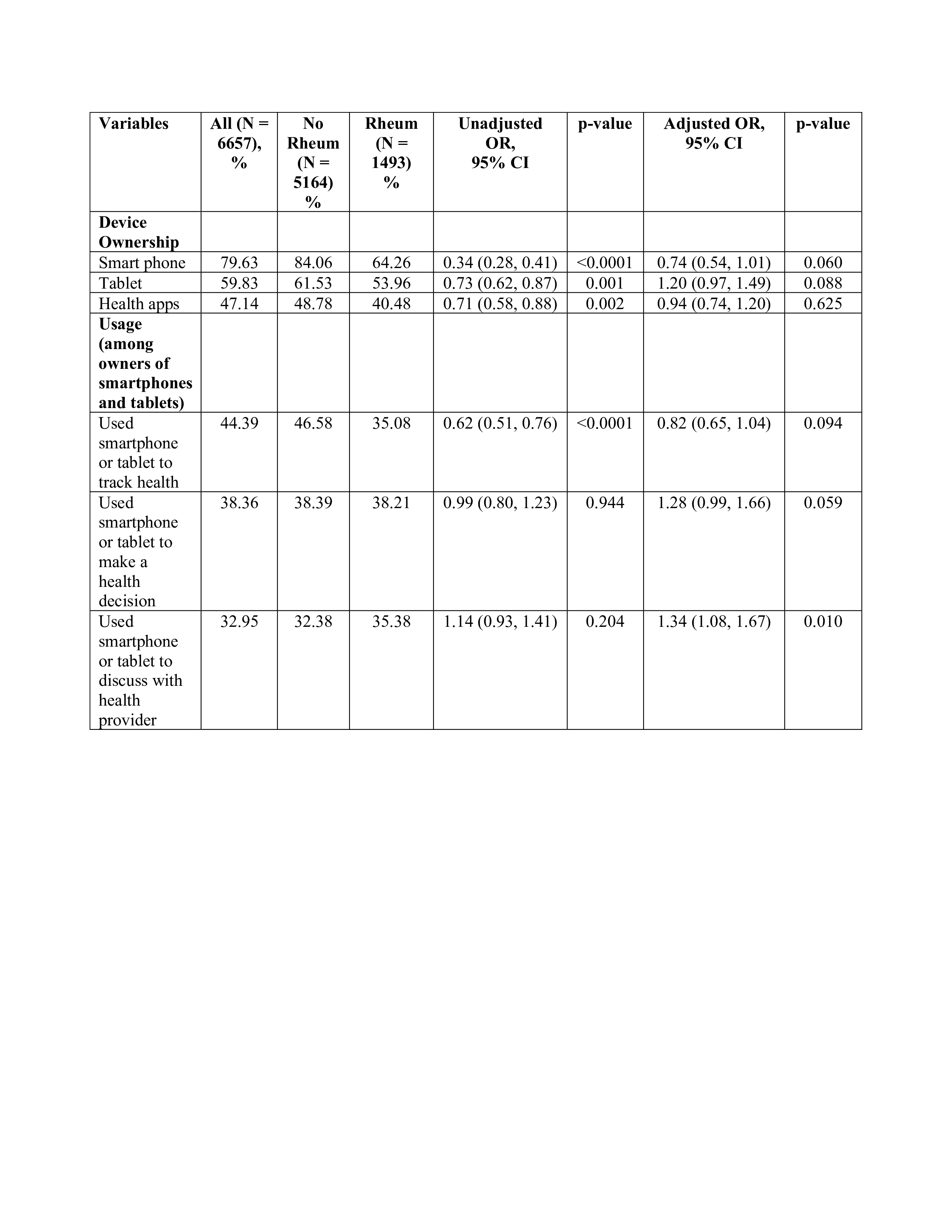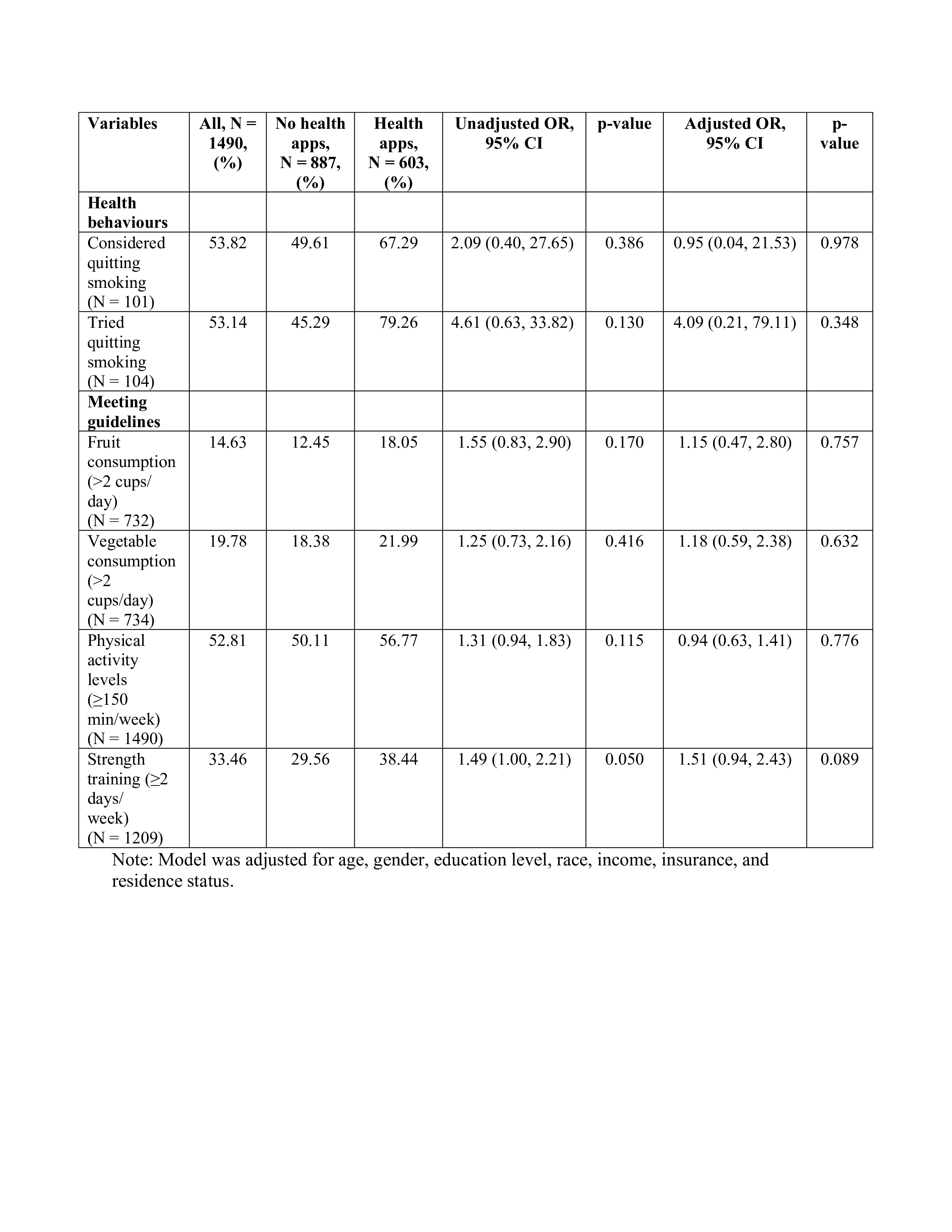Session Information
Session Type: Poster Session C
Session Time: 10:30AM-12:30PM
Background/Purpose: Rheumatologic diseases (RDs) significantly impact the quality of life, cause significant socioeconomic burdens, and increase the risk of other systemic diseases including cardiovascular disease, infections, and malignancy. Digital health tools (DHT) have shown promise in health promotion among cancer survivors and individuals with cardiovascular disease. Yet, there is currently a lack of research on its use in people with RDs. In this study, we examined the ownership and use of DHT among individuals with RDs and evaluated the relationship between DHT use and positive health behaviors in this population.
Methods: We extracted data from adult respondents of the 2017 and 2018 iterations of the Health Information National Trends Survey (HINTS). We classified study respondents into two groups: ‘RDs’ and ‘no RDs’. The outcomes of interest were (1) ownership and perceived usefulness of DHTs and (2) positive health behaviors defined as adherence to nationally recommended levels of (i) general physical activity (≥150 min/week of moderate-intensity activity), (ii) resistance and strength exercise (≥2 times/week), and (iii) fruit and vegetable intake (≥2 cups of each/day). Using separate multivariable logistic regression models, we evaluated for differences in ownership and perceived usefulness of DHT by RD status, and the relationship between DHT usage and adoption of positive health behaviors among individuals with RDs.
Results: In this study, we found no difference in ownership and usage of DHTs between participants with RD and those without RD (Table 2). Among individuals with RD, males, those older than 65, and those from households with an annual income < $20,000 were less likely to use DHTs (Table 1). Among individuals with RD, there was no difference in health behavior change between DHTs users and non-users weekly physical activity levels [OR 0.94; 95% CI (0.63, 1.41); p= 0.776] and weekly strength training [OR 1.51; 95% CI (0.94, 2.43); p= 0.089]. Individuals with RD were just as likely as those without RD to own and use smartphones, tablets, and health apps, but more likely to report that the DHTs facilitated discussions with their healthcare providers (HCP)[OR 1.34; 95% CI (1.08,1.67); p = 0.010].
Conclusion: Among people with RD, males, individuals older than 65 years, and those from the lowest income class were less likely to use DHTs. Although people with RD were more likely to report that DHTs facilitated discussions with HCP, we found no evidence that this leads to health behavior change. DHTs remain an untapped resource in managing RD. Tools such as exercise, meal prep, and pain management apps specific to RD should be explored to optimize health behaviors among individuals with RD.
To cite this abstract in AMA style:
Mamoh U, Salia S, Jaller A, anim-koranteng C, Halliday J, Atarere J, Akhiwu T, Acharya I. Use of Digital Health Tools for Health Promotion Among Individuals with Rheumatologic Diseases in the United States [abstract]. Arthritis Rheumatol. 2024; 76 (suppl 9). https://acrabstracts.org/abstract/use-of-digital-health-tools-for-health-promotion-among-individuals-with-rheumatologic-diseases-in-the-united-states/. Accessed .« Back to ACR Convergence 2024
ACR Meeting Abstracts - https://acrabstracts.org/abstract/use-of-digital-health-tools-for-health-promotion-among-individuals-with-rheumatologic-diseases-in-the-united-states/



